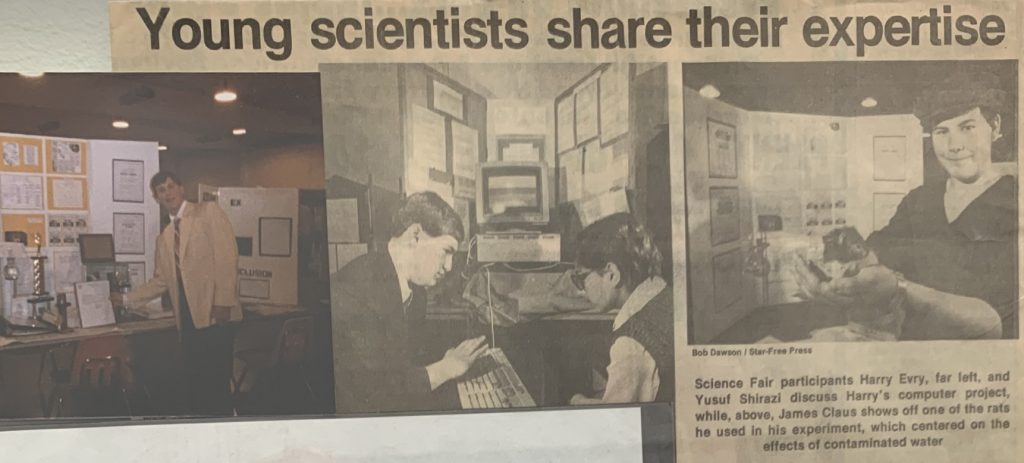A few of my ULISSES Project colleagues and I will be meeting with the new head of the Games Program at the University of Utah in a couple of weeks. As someone who grew up with the Gaming Industry, I’m excited to meet with Computer Science/Gaming people where the $150 billion industry was born. For those of you who are unfamiliar, the first commercially viable video game company, Atari, was started by University of Utah graduate Nolan Bushnell. Before there really was a gaming industry, Atari was a magnet for the rock stars of computer science. Not only were there serious researchers like fellow University of Utah graduate Alan Kay but also young hotshots like Steve Jobs who also worked there.
It was also from Atari that the independent studio revolution in game design began, with the Gang of Four breaking out on and starting their own independent studio, Activision, that cemented their viability with the blockbuster Pitfall! This was an idea as revolutionary in games as it was a decade later in comics when Image Comics was formed outside the big two (Marvel and DC), giving us such cultural staples as the Walking Dead, Spawn, and The Kingsmen.
Gamers and Coding
I will leave a discussion about our ideas for gaming with the ULISSES Project for after our meeting so, for now, I will discuss my opportunity to reconnect with my oldest childhood friend, Harry, someone I met 35 years ago as fellow Cal Science Fair geeks. Before meeting Harry, I thought I was a computer jock because I could sling a little 6502, port statistical code from the HP-85, and do a mod for Taipan!, but Harry brought it to a whole new level.
We met one day facilitated by a vegetarian pizza courtesy of his mother. As we sat down the first time, we talked about games and gaming. He then described the numerous languages and applications he had created to facilitate both writing games and a system that allowed him to do film post-production. Keep in mind this was 1985, and this was something new to the world, including the big boys in Hollywood. He was my age, had already sold numerous games, and was already consulting with Disney and Universal. While the CalTech professors thought it was a waste for the best young programmer that they’d ever seen to be doing games and film, I thought it was the coolest thing I’d ever seen.
We wanted to spend more time together, but due to some court-mandated issues (another story), I could only go out with the approval of my probation officer. The highlight of that entire year was when my probation officer allowed me to go to Universal Studios with Harry to hang out in the control room and watch his programming at play in the Conan Sword and Sorcery Spectacular. While most kids were daydreaming about what they’d do when they grew up, Harry was already as a kid controlling real giant robot snakes and shooting wizard laser bolts. He was my best friend that year in which he set the standard for the rest of my life of what prodigy means.
The Search for Infinite Xs
In the end, Harry decided to not go the academic route, but instead to stay in LA and become the youngest head of post-production (basically the head of IT) in Hollywood history and do other cool things like help Paramount launch Star Trek TNG. Degree or not (Harry actually never finished his undergraduate degree), he was the best programmer I had met and that started my quest to work with the best of the best engineers. These are not people that seek money or fame but instead, they seek the challenge and to do good in the process. I call these people the Infinite Xs.
In short, I believe that movie FX merging with video games (an area Harry helped pioneer) is the “Third Epic” that everyone has been waiting for (of course this coming from a guy who manages his software projects with JIRA Epics). Accordingly, I think there are a lot that finance can learn from video games and gamers. Ever since Harry, I’ve found that the common thing about Infinite Xs is that they are gamers, obsessed with solving problems, and they seek to do good (or as little bad) in the process. Some have made their way into finance and government programming, but not many. I hope to change that, and anyone following this blog, and the ULISSES Project, will see much more to come.
As a reference, this is a picture of Harry and me in a local paper when we were kids. The newspaper clipping hangs in my office at the University of Utah to this day.



One Reply to “Gaming and the Future of ULISSES”